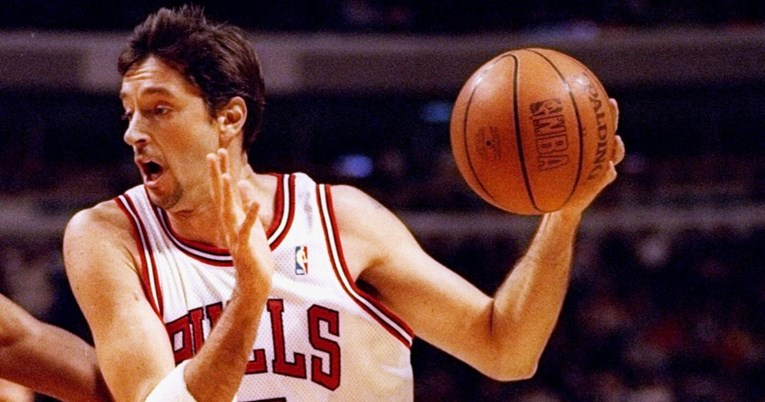Kukoc's brilliance in the most difficult Bulls game cut off from the Last Dance

THE DOCUMENTARY about Michael Jordan and the Chicago Bulls has finished, and Toni Kukoc hasn't come to his own once again. Everyone mad that the Croatian ace was under-represented in the Last Dance has the right to be absolutely furious because Kukoc has been completely ignored in the last two episodes, although they represented the period in which he played one of his best games in the Bulls' golden era.
The ninth episode starts with the 1998 Eastern Conference finals versus Indiana Pacers, which eventually became one of the only two series where the Bulls had to get through Game 7 on their way to winning all six championship titles.
The Pacers fought heroically and were leading in the last quarter, and Kukoc himself held the Bulls in the game. That evening Kukoc played the best playoff game so far that year and ended with 21 scores, but he's not even mentioned in the context of that game in the documentary. The fame in the Last Dance went to Steve Kerr, who, with six minutes before the end after a jump ball situation, hit a three-pointer and tied the score. The arena exploded with cheers and gave them fresh energy for the final victory 88:83, and the entrance in the sixth finals in eight years.
"If we win that jump ball and go down and score, and go up 5 - this could be it for them," said Reggie Miller, Indiana's first basketball star. "Steve Kerr hit the biggest shot of that series, and to me, that's where everything went downhill for us."
But there was not a single word about Kukoc's big show, although all the media gave him massive credit for the victory in the psychologically most challenging game that the championship generation of the Bulls ever played.
Twelve days later, Kukoc outperformed that game and played his best game in the NBA Playoffs ever. In the fifth game of NBA Finals against Utah Jazz, he scored 30 baskets, two more than Jordan himself, with unbelievable efficiency. He was shooting unrealistic 11/13, he was impeccable for two points, and he missed only two out of six three-pointers.
The Bulls were leading 3:1 in the series, and with the game on home court should have confirmed the sixth championship title in eight years. But the Utah team wouldn't break, and they entered the last minute with a lead. Kukoc scored a three-pointer and brought Chicago down to 82-81. After Jeff Hornacek scored only one free throw for a two-point game, 1.1 seconds were left for the Bulls' last shot - for overtime or the win.
During a time-out, coach Phil Jackson drew the action specifically for Kukoc, who scored many similar shots in his career and also had the hot hand that night. But the ball didn't come to him; it came to Jordan who couldn't even hit the basket from a difficult position.
We haven't heard a single mention of Kukoc's big show in the documentary, nor anyone's comment that Kukoc should have had the last shot.
By and large, if historians were led only by the Last Dance, it would have seemed that Kukoc had a miserable role in his entire career with the Bulls, and not that he was actually the third offensive option behind the two indisputable giants, Jordan and Pippen, and the fourth most important player in one of the biggest teams of all times if we put Dennis Rodman in front of him on the list.
Besides the parts in which Kukoc was getting owned by Jordan and Pippen in the Olympic games in Barcelona to send a message to the hated general manager Jerry Krause, we have barely seen Kukoc in nearly ten hours of the Last Dance. His basketball background was briefly mentioned in the fifth episode with some footage from the period when he played for the basketball club Jugoplastika, but besides that, Kukoc's role in the documentary was as minor as the role of a movie extra.
We could have predicted this outcome at the very beginning when Kukoc was erased from the famous Bulls photography used as a teaser poster for the documentary. He was replaced by Steve Kerr, a current coach of the Golden State Warriors who is better known to the younger generation. We have still hoped that he would get at least as much attention in ten episodes as he deserved.



 Facebook
Facebook
 Google
Google